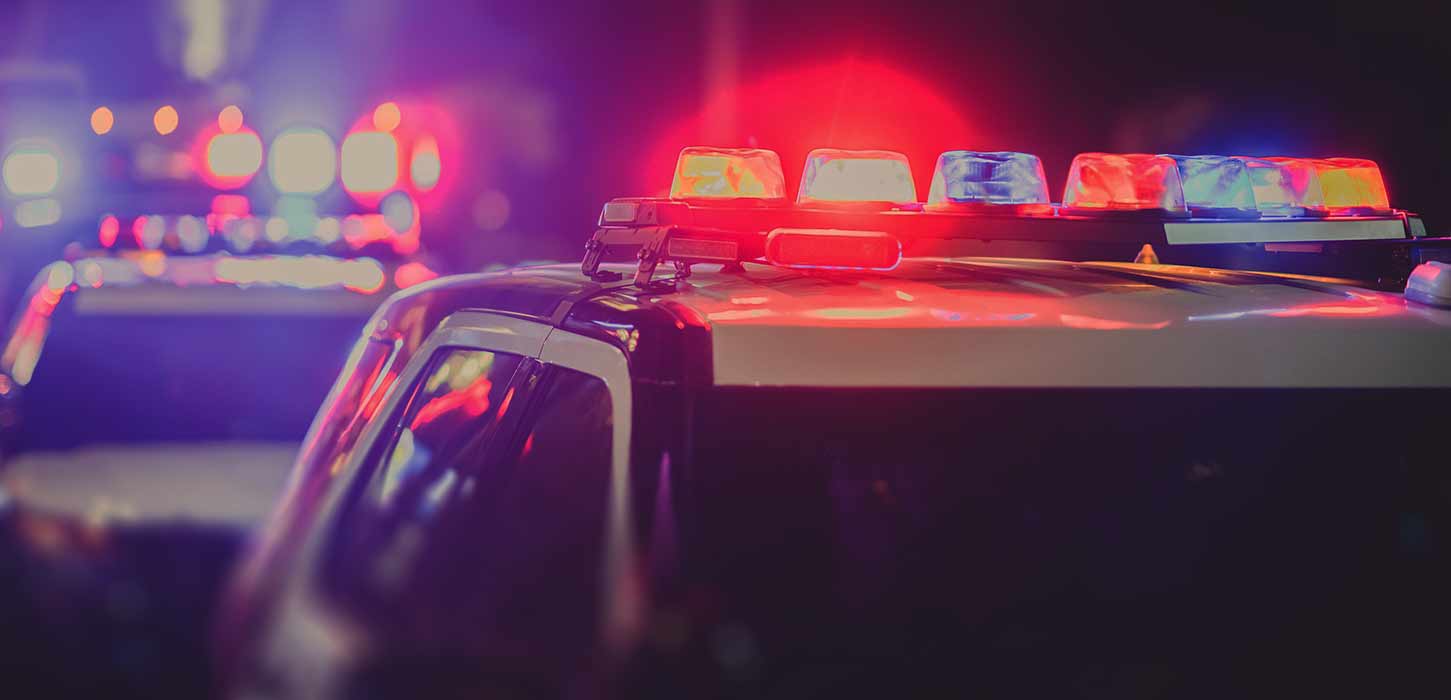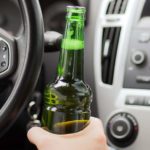Standard Drunk Driving Terms and Definitions
If you are accused of an alcohol or drug-related driving offense, you may be searching the internet for information about the charge, the penalties, and any potential defenses available. It may be helpful for you to understand some of the common terms.

What You Need to Know About Drunk Driving Terms and Definitions
Drunk Driving or Drugged Driving terms and definitions are complicated and confusing. Their cases have different variations of the terms and practices surrounding this type of crime. If you’ve been charged with driving under the influence of alcohol or drugs, you need legal counsel to guide you through the process, and LEWIS & DICKSTEIN, P.L.L.C. can help.
This information is here so that you can get a snapshot of the charge and the language that may be used regularly during the defense process of a criminal case. Although the material listed below will offer some clarification, it cannot take the place of an experienced and dedicated attorney. Here are the basic drunk driving terms and definitions you need to know.
The common interchangeable catchall terms are DUI or OWI, which are acronyms for Driving Under the Influence and Operating While Impaired. Again, this could indicate driving under the influence of alcohol or drugs. Other common acronyms used relative to these types of charges are:
- DWI- Driving While Intoxicated or Impaired
- OUI – Operating under the Influence
- OUIL – Operating under the Influence of Alcohol
- OUID – Operating under the Influence of Drugs (including prescription medication and marijuana)
- OWI – Operating While Intoxicated
- OWVI – Operating While Visibly Impaired
There are two classifications of charges for drinking and driving cases.
- Misdemeanor – a charge that carries a penalty of up to $1000 and up to one year in jail.
- Felony – a charge that carries a penalty of $200 to $1000 and 30 days up to 20 years in prison.
Most drunk driving terms and definitions are the same for felony and misdemeanor charges. A drunk driving conviction can have far-reaching and long-lasting impacts on an individual’s life, extending beyond the immediate legal penalties such as probation, fines, license suspension, and possible jail time. One of the most immediate collateral consequences is the potential increase in car insurance premiums or, in some cases, the inability to secure car insurance. The individual’s driving record will carry the conviction, which could lead to employment challenges, especially if driving is a significant part of the job duties. In some professions, particularly those that involve public trust or safety, a drunk driving conviction can result in job loss or hinder future employment opportunities. This is particularly true in professions like law enforcement, healthcare, or transportation.
For students, a conviction could impact financial aid eligibility and lead to disciplinary actions if enrolled in an educational institution. The conviction might also affect their admission into certain academic programs or professional schools. Beyond employment and education, there can be significant social stigma attached to a drunk driving conviction. Relationships with family and friends may be strained, and there could be damage to the individual’s reputation in their community.
If the individual is not a U.S. citizen, a drunk driving conviction can have immigration consequences, potentially leading to deportation, inadmissibility, or denial of naturalization. Additionally, travel to certain countries might be restricted. For example, Canada has stringent rules against allowing individuals with DUI convictions to enter the country.
Furthermore, the conviction may also affect one’s credit rating. If there was an accident involved that led to damage of property or harm to another person, there could be civil lawsuits resulting in financial liabilities. The emotional and psychological impacts of a conviction, including the collateral consequences, can also be severe, potentially contributing to mental health issues such as stress, depression, or anxiety.

More Drunk Driving or Drugged Driving Terms and Definitions
If you face allegations of drunk driving or any similar offense, there are basic drunk driving terms and definitions that would be helpful for you to understand.
- BAC – Blood Alcohol Content is the amount of alcohol detected in an individual’s bloodstream. It depicts the level of intoxication. The limit in Michigan is .08.
- Breathalyzer – A device that an individual will blow into that will measure alcohol presence within the body. The result of a breathalyzer test is admissible as evidence.
- Preliminary Breath Test – A test where an individual will blow into a device to measure alcohol presence within the body. Also, referred to as a PBT and is generally not admissible in court.
- Chemical test – A test that will measure the level of alcohol or drugs present within the body.
- Conviction – A decision of guilt rendered in the criminal case following a trial or plea.
- Defendant – The individual charged with drunk driving.
- Field Sobriety Test – A test conducted when a law enforcement official suspects impairment and requests a variety of physical function tasks to determine if a person is intoxicated.
- License Suspension or Revocation – A temporary or indefinite loss of driving privileges that will require either a reinstatement fee or a hearing to regain the legal right to drive.
- Plea Bargain – An agreement between the Prosecutor and the Defendant to enter a guilty plea to a lesser charge.
- Probable Cause – The police must have a viable reason for pulling you over, such as a traffic violation.
- Prosecutor – The legal representative for the City or County in which the charge arose
What to look for in a drunk driving defense attorney?
When seeking to hire a top lawyer for a drunk driving defense, it is crucial to prioritize specific attributes and qualifications to ensure the best possible legal representation. Start by looking for an attorney with extensive experience in DUI or OWI cases, as they will have a deep understanding of the complexities and nuances of this area of law. It’s beneficial if the lawyer has a proven track record of successful case outcomes, demonstrating their ability to navigate the legal system effectively and achieve favorable results for their clients.
Expertise in field sobriety tests, breathalyzers, and blood tests is essential since challenging the accuracy of these tests can be a critical component of a drunk driving defense. A top lawyer should be well-versed in identifying procedural errors, equipment malfunctions, or issues with the handling of evidence that could lead to the dismissal of charges or reduction of penalties. The defense attorneys with LEWIS & DICKSTEIN, P.L.L.C. have taken advanced training through the National Highway Traffic Safety Administration and regarding the Intoxilyzer 9000.
In addition to technical knowledge, look for an attorney with excellent communication skills, as they will need to articulate your defense clearly and persuasively, both in written motions and in court. They should also be adept at negotiating with prosecutors to secure plea bargains when it is in their client’s best interest.
Ensure that the attorney is responsive and attentive, demonstrating a commitment to your case and an understanding of the urgency and gravity of the situation. They should be available to answer your questions, provide guidance, and keep you informed throughout the legal process. The defense lawyers with LEWIS & DICKSTEIN, P.L.L.C. will keep you informed, provide regular updates, and always return calls and emails promptly. We do not want to be another source of stress for you!
Consider the lawyer’s reputation within the legal community, client reviews, and testimonials. A top lawyer will have earned respect from their peers and positive feedback from previous clients. Additionally, they should be in good standing with the state bar association.
Finally, it’s important to assess the lawyer’s transparency regarding fees and costs associated with your defense. A top lawyer will provide a clear and straightforward explanation of their fee structure, ensuring that there are no hidden costs or unexpected expenses. The best drunk driving attorneys use written fee agreements that are clear, easy to understand, and prevent future legal fee surprises.
By focusing on these critical criteria, you can identify a top drunk driving defense attorney with the expertise, experience, and dedication necessary to provide the best possible defense and navigate the challenges of your case. If you call LEWIS & DICKSTEIN, P.L.L.C. for a free consultation, we will take the time to talk with you, answer your questions, and work with you to develop a winning strategy!

Experienced Drunk and Drugged Driving Defense
An experienced attorney from LEWIS & DICKSTEIN, P.L.L.C. can offer additional information as well as a ferocious defense for any drunk/drugged driving offenses. The highly effective OWI and DUI defense attorneys with LEWIS & DICKSTEIN, P.L.L.C. have decades of experience and a well-known track record of success in district and circuit courts throughout Michigan. Call us for a free consultation and confidential case evaluation. If you need clarification on any drunk driving terms and definitions, we are here to help.
Call us today at (248) 263-6800 for a free consultation or complete an online Request for Assistance Form. We will contact you promptly and find a way to help you.











